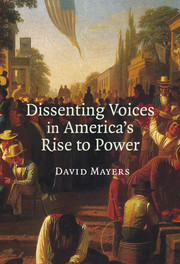3 - Greece
from Part I - Expansion
Published online by Cambridge University Press: 05 June 2012
Summary
The 1789 French political earthquake produced aftershocks long after the 1812 War and Napoleon's later banishment to St. Helena. These included the continent-wide revolt in Latin America against Madrid's authority, triggered by French invasion of Spain in 1808. Washington fully acknowledged the success of this liberation, led by Simon Bolivar and Jose de San Martin, in a presidential statement on December 2, 1823 (subsequently christened the Monroe Doctrine). Emperor Pedro I of Brazil had earlier declared independence from Portugal (1822), itself ruled since 1820 by a liberal constitution.
Moments of democratic-national intensity also flared during the twenties in Naples and Piedmont (1820–1821), Spain (1820–1823), and among Russian military officers imbued with French convictions, the Decembrists of 1825. Countervailing legitimacy – solemnized by the Treaty of Vienna, embodied in the Holy Alliance, powered by oppressive military engines – buried these projects in reaction.
The turbulent character of the 1820s was nowhere more apparent than in the ramshackle, polyglot, multireligious, ethnically diverse Ottoman empire. Its Egyptian and Syrian provinces were jolted by the Napoleonic commotion. French notions of liberty also reinforced impatience with Ottoman overlordship in the empire's European intelligentsia, particularly the Greek component. The eminent Rigas Velestinlis composed a constitution, among other radical documents, suffused with French ideas for a future Hellenic republic. He translated the Rights of Man into Greek. He had hoped before his martyrdom in 1798 by agents of the Sublime Porte to consult with Napoleon.
- Type
- Chapter
- Information
- Dissenting Voices in America's Rise to Power , pp. 56 - 79Publisher: Cambridge University PressPrint publication year: 2007

